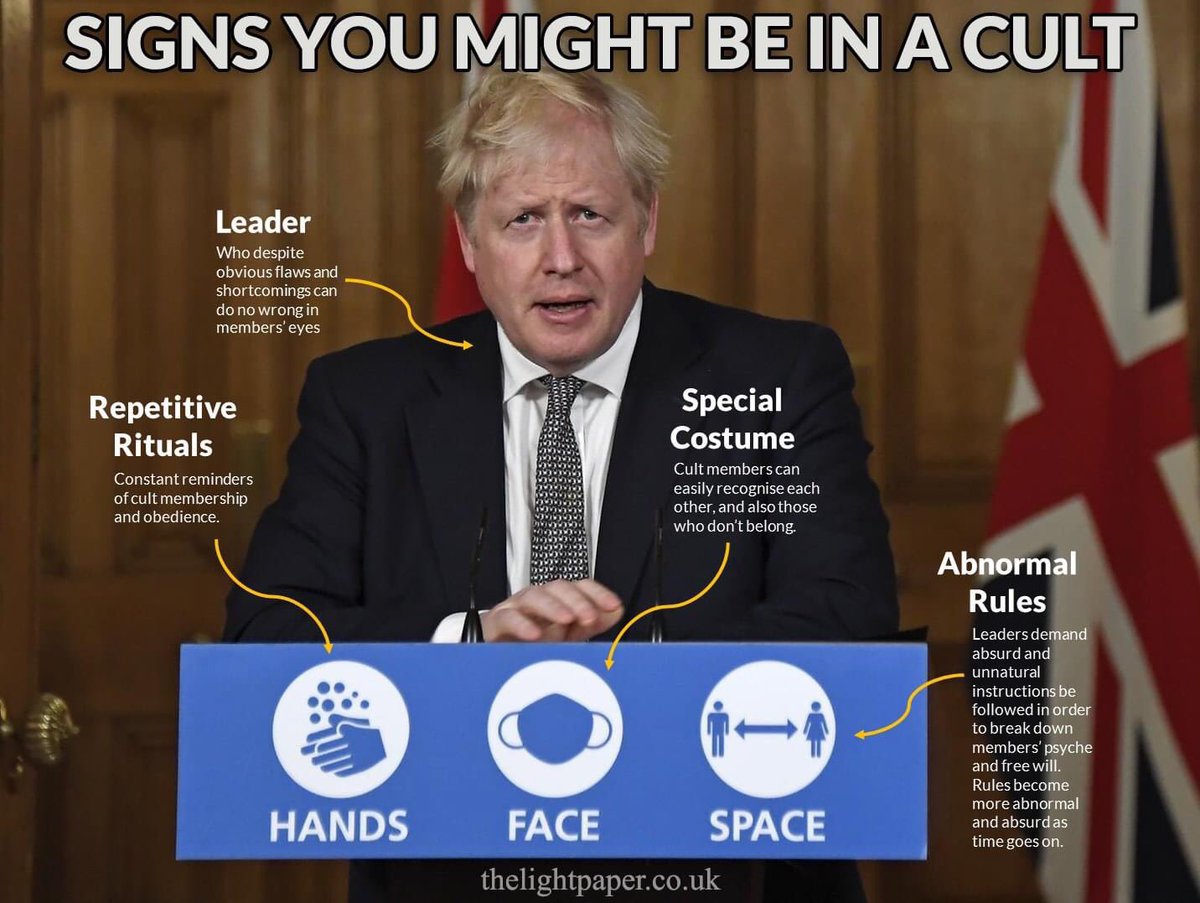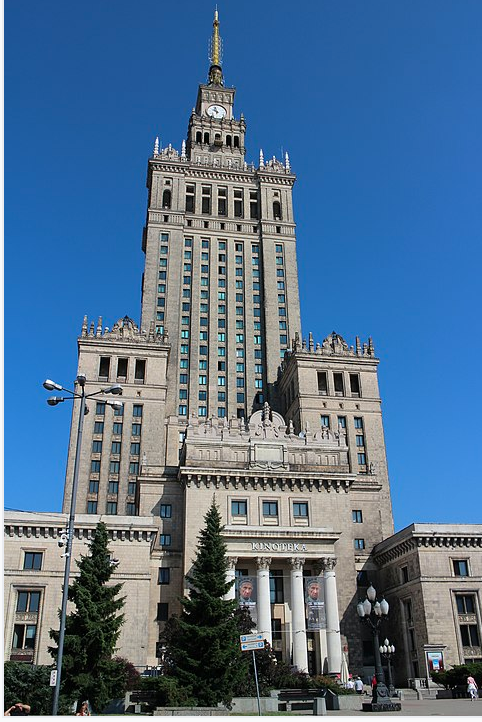MURDER, POLITICS, AND THE END OF THE JAZZ AGE
by Michael Wolraich
A Tweet Thread by Izabella Kaminska @izakaminska
Cults by and large are naturally occurring phenomena. Like it or not we are all probably in some kind of cult. But to ensure you are not taken advantage of it’s important to know your cult.
Many years ago I was thinking of writing a book called Cult Markets. The basic premise was that the rise of things like bitcoin, Tesla and unicorns - investing was turning ever more into a cult-like belief structure. I was curious to investigate the cult aspects of many assets.
I had some insight into the cult phenomenon because I had always enjoyed studying ancient history. From the mystery cults of Rome to early Christianity, cults had clearly played a major role in the story of human progression but also investment.
But what really is a cult? What does it mean to be described as a cult product or a cult trend?
Are there good and bad cults? And if so what differentiates them?
An example of a good cult I would argue is something like the belief in Santa Claus. We all know Santa Claus is not real. We all know it’s silly. But it makes us happy to suspend belief for the sake of giving our children something positive and magical to believe it.
But even with Santa Claus we have to recognize there’s an important social control side to the story. We as parents use Santa to control our children. That’s not necessarily ominous. We lie to them because we love them and need incentives to keep them on track.
Bitcoin is also a type of a cult. Unlike Santa Claus though it’s not presented to us from a paternalistic perspective. People who buy crypto I have found tend to be fully aware of its Ponzi scheme nature. And that really is its most innovative hack.
Because bitcoin is structured like a cult (even comes with a mythical but anonymous founder) it draws a sense of stability from its believers. The more they believe (or HODL) the more stable it gets. And since they are cognizant of their role in the cult it’s actually somewhat hard to argue against their right to contribute or donate to the cause they believe in. They are doing it of their own free will and that’s important. As long as the disclosures are there and ppl join freely and understand the risks, it is I think fair.
The problem is .. the more normalised a cult becomes in society the easier it gets to distract would-be recruits from the fact that they are actually joining a cult. This is bad. As it means they can be manipulated. So an honest cult takes care that new recruits are made aware.
In stocks, these problems come about when unscrupulous stock promoters oversell products without flagging the due risks. Or over sell the cult leader/founder as being something he isn’t. That’s why authenticity matters.
Which brings me to the Personality Cult. From Elon Musk in business, Lady Gaga in pop culture to the cults of Stalin, Xi and Trump in politics, personality cults are everywhere. Are personality cults ever ok?
My graduating thesis from my ancient history BA at UCL was on "the significance of the cult of Apollo to the reign of Augustus". This was decades ago, but I think the learnings are still very relevant.
The interesting thing about Augustus (formerly known as Octavian), is that he knew that to stabilise Rome from years of civil war and unrest, he needed to give the Romans something to believe in. His cult of Apollo was a bit like a benign cult.
To understand the rationale for the Augustan Cult of Apollo, you have to understand the disinformation wars/chaos that came before them. I wrote about them here in 2016:
A lesson in fake news from the info-wars of ancient Rome | Financial Times
Apollo was a means to an end. Augustus did not set out for people to worship him directly, but rather to associate his reign with the god Apollo for whom cult practice was already fairly established. All sorts of things thus became dedicated to his favourite god.
But slowly over time the deification of the emperor became a thing. It's not that Romans were suddenly brainwashed into thinking he was god, but rather that eventually he would join the gods. Since heroes could.
So a cult that was developed mostly to help give the plebs something to believe in, in a way that could help stabilise Roman society after decades of discord, inadvertently became the foundation of an Imperial Cult that would later be massively abused by future emperors.
Roman cults went wrong, essentially, because after many generations people lost sight of the practical foundations of obviously fake cults. Augustus gave people something morale boosting to believe in: a make Rome great again message. He started a reconstruction effort.
But it's unlikely Romans really believed Augustus was a god. Rather, Rome's deep hatred of kings meant the only way to consolidate the system was under the optics of a fake Santa Claus-style cult.
To this day, historians are divided on whether Augustus was really a good or bad force in the course of the breakdown of the Roman Republic, and whether his reign can be seen as constructive or destabilising.
Which brings me back to the original point. What is the purpose of a cult? I would argue it is a naturally-occurring phenomenon that help society navigate the ambiguous. The ambiguous can be interpreted in many ways. It is thus extremely destabilising.
When evidence is lacking and facts are ambiguous, like it or not, we all have to take a biased perspective on how we proceed forward. Cults unite societies to ensure those ambiguities can be faced collectively in a stabilising way. This is how cults give rise to CULTURE.
This, for example, is Warsaw's Palace of Culture AND science - a gift from the USSR to the Polish people, recognising the tricky balance between ambiguity and facts. It represents the power of being able to influence a society's perspective on the ambiguous.
But it was also representative of a cult that the Poles did not give consent to joining. They had a different perspective on the ambiguous.
So I guess my point is, cults are OKAY & potentially stabilising forces. But ONLY if you join them freely of your own mind and in full recognition of the fact that you are suspending neutrality for the sake of a biased perspective on the ambiguous. Which may or may not work out.
They are, however, not a substitute for "science", because they are by definition anti-scientific.
When ambiguities run high, voluntary cult formation is a potentially good and stabilising force. If people understand the reason they are being asked to suspend neutrality, it can make sense. What people must not be is duped.
A good cult never hides the fact that there are other perspectives out there, or other cults that might be more suitable for you and your own. It ask you to join it voluntary. It does not attempt to recruit or impose its ways on others.
That is the essence of what the culture wars really are I think. A battle between many different cults trying to make sense of modern-day ambiguity. My only warning is that it's probably wise to be wary of the cult that tries to obscure it is a cult.
I also think it’s important to focus on the positive attributes of some benign cults and the stabilizing force they play in society. A good one for generations and generations has been FOOTBALL.
As a committed contrarian I am always questioning - have I unconsciously fallen into a cult? Am I really using critical thinking? Am I happy with these unproven assumptions if I have? Do they have a positive impact on my life and others?
Signs you are in a “good” cult: 1) encourages you to keep questioning 2) asks you to hold leadership to account 3) is focused on positive morale messaging rather than self-hate 4) aims to tie ritual with beautiful aesthetic which gives you chills :)
Most importantly I think a “good” cult encourages its members to respect others who don’t think as they do. Does not resort to ad hominem attacks on others/disparages them as morons. Never condones violence. Preaches that actions speak louder than words & ends never justify means
Signs you are a in a bad “cult”. 1) You’re dismissive of those who do not think like you do. 2) the cult preaches self-hate not self-improvement, love and positivity. 3) you do not permit questioning or critical thinking or shout down any one who has a different perspective
Other indicators of a “bad cult” may be that you continuously refer to yourself and other members as aspiring global leaders. Want to impose your views not just on your society but the world. And of course that violence is ok if the ends do justify the means.
LAST TWEET: You can learn a lot about whether you are in a good or bad cult from the Minions franchise
• • •
Comments
thanks Emma, I do follow several of the culture writers at FT but I didn't have her, I've added her now!
by artappraiser on Sun, 11/08/2020 - 4:06am
by artappraiser on Mon, 11/09/2020 - 8:54pm
I found another video of the people in that church laughing.
by ocean-kat on Mon, 11/09/2020 - 9:18pm
Wow, Copeland has not aged well at all. Looks like he has had some face work done, implants, botox? He does look demented in that clip, though. Is that dementia or just the flip side of TDS? idk. I haven't seen the Copeland ministries since I switched from network television to streaming videos. He and wife Gloria are charismatic, prosperity gospel preachers who were/are weekend regulars on local UHF infomercial/ rerun channels. I always thought wife Gloria was the better preacher. Not sure they qualify as a cult though. More like entertainers and self-help marketers. They sell books, videos, retreats, etc. and their audiences seem to be pretty fluid -- buying in to their messages and products for varying lengths of time. Basically, the only difference between them what are now known as entertainer/influencers is that they were earlier and more successful than, well, almost anyone except maybe Kylie (or is it Kendall) Jenner. It's a shame they have become that political but how is that different than how political so many actors/entertainers have become?
BTW, Omar Wasow's math needs work.
by EmmaZahn on Tue, 11/10/2020 - 6:59am
"Not sure they qualify as a cult though."
Seems to me the only difference between a cult and a religion is the how many generations of con men have been running the scam and the number of people who are fooled by the fiction they're selling.
by ocean-kat on Tue, 11/10/2020 - 11:02am